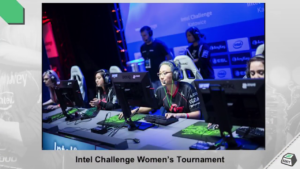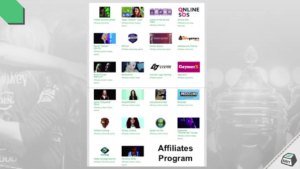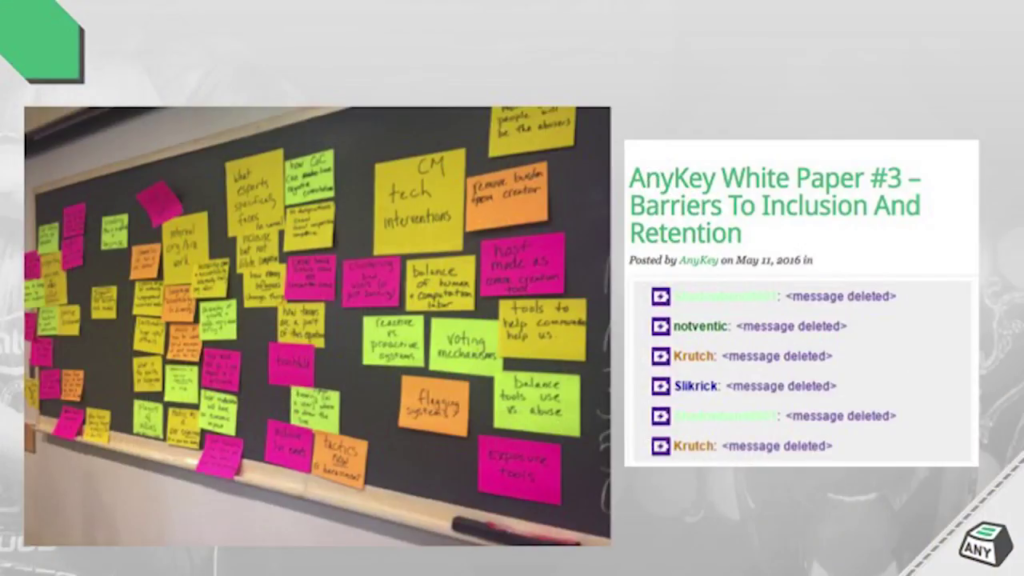TL Taylor: Hi. My name is TL Taylor. I’m a professor here in comparative media studies and I’m codirector of an organization called AnyKey which I’ll tell you a little bit about today. We launched 2016 with the help of Intel and ESL. We’re an organization dedicated to fairness, equity, and inclusivity in gaming and in particular esports. If that’s unfamiliar to any of you, hopefully some of the little slides I will show will give you some context for that.
I codirect AnyKey with Morgan Romine. I’m the Director of Research, she handles our initiatives. We’re very interested in linking these two, making sure we’re spinning up things that are based on research work. Morgan is a PhD in anthropology from UC Irvine. So, I encourage you to visit our website. There’s lots of info there, and I’ll just highlight a few things today.
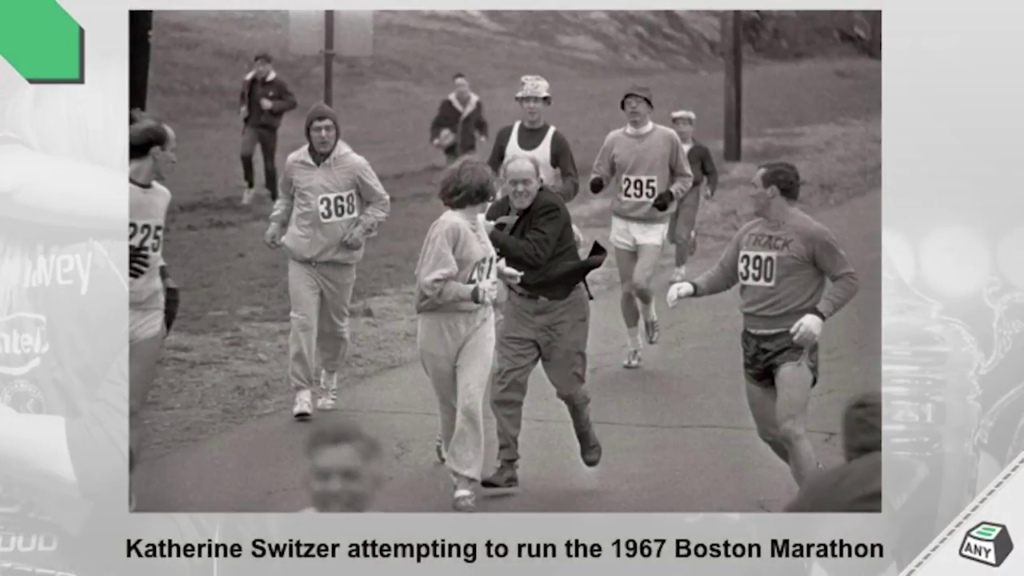
So, I want to start with a little bit of history. Maybe some of you are familiar with this story; it’s a fantastic story of Katherine Switzer attempting to run in the 1967 Boston Marathon. The man pulling her out is Jock, one of the refs who was basically… You know, women were not allowed to run at that time so he was pulling her out. We could certainly think of this as an interesting moment of harassment, but how might we think about participation in general? And one of the things that we’re doing in AnyKey is really trying to tackle esports…what it looks like back in this period pre Title IX, when women were harassed, prohibited, weren’t able to fully participate in competitive sports.
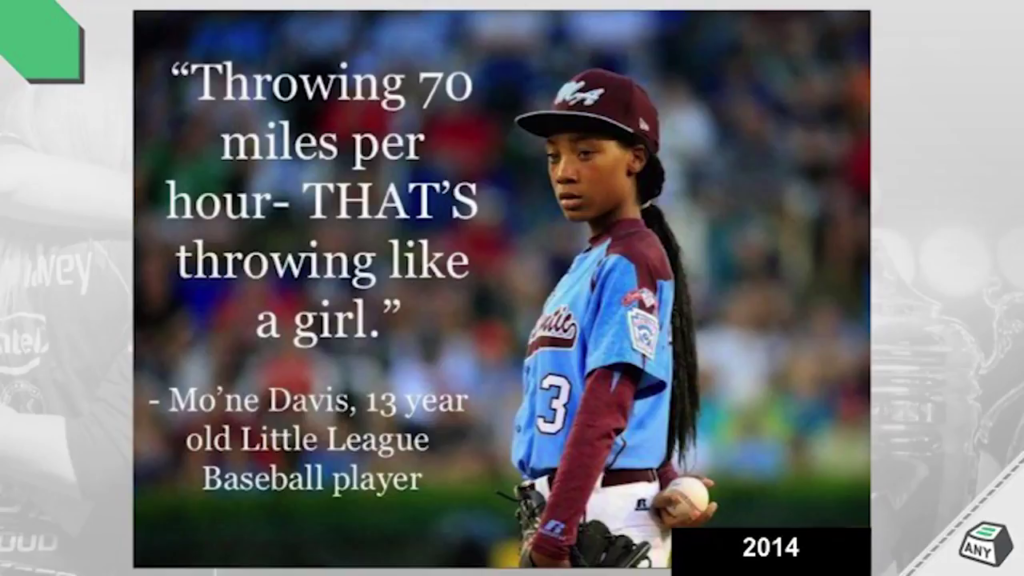
So the Katherine Switzer story is an interesting one because of course in the space of forty-plus years we now have somebody like Mo’ne Davis, who’s an amazing Little League pitcher. So what’s changed, and how can we take some of those lessons from traditional sports and pull them over into gaming and esports?
So, one of the things that we do at AnyKey is we try to think very sociologically about this. We tackle issues of participation and inclusivity in gaming through a variety of structures and I’m gonna highlight a few of those projects for you.
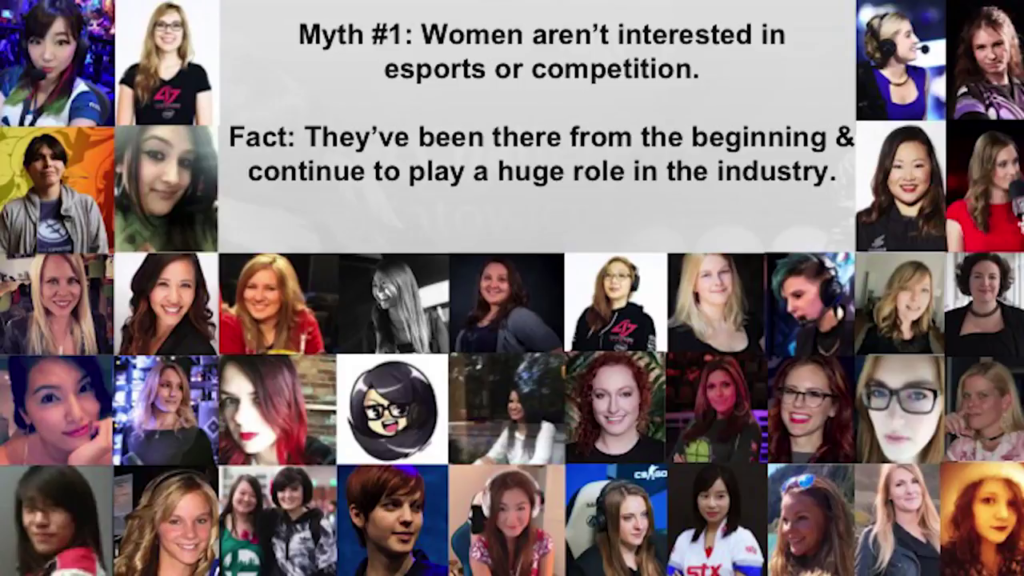
Probably one of the most important things we have to do at the outset is explain to people that women are interested in competitive gaming. Again, a little bit like if you think way back in the day, there was a whole kind of cultural shift that had to occur to allow women to be participating in athletics. Women have a long history in esports, have been wanting to participate, do participate.
And so one of the things that we do a lot of is try to give visibility to all the women who are working in this space, active there. One of the early workshops we did, a lot of the women that were already succeeding in esports said that having role models or even just seeing a woman at a convention do what they wanted to do was powerful.
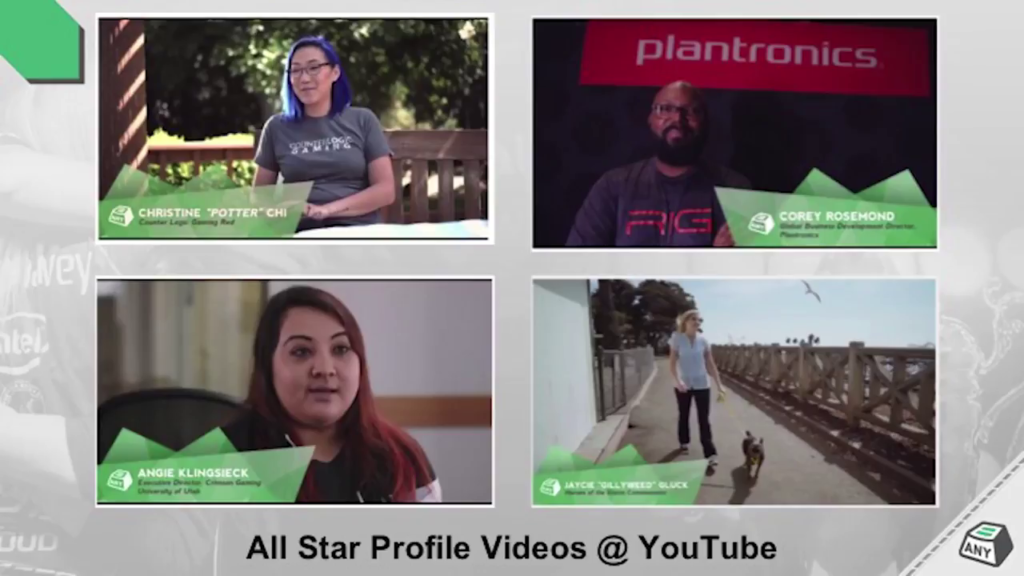
So we took that little tidbit from our research. We have a video series that kind of highlights people. We do profiles. We try to sort of promote this visibility angle.
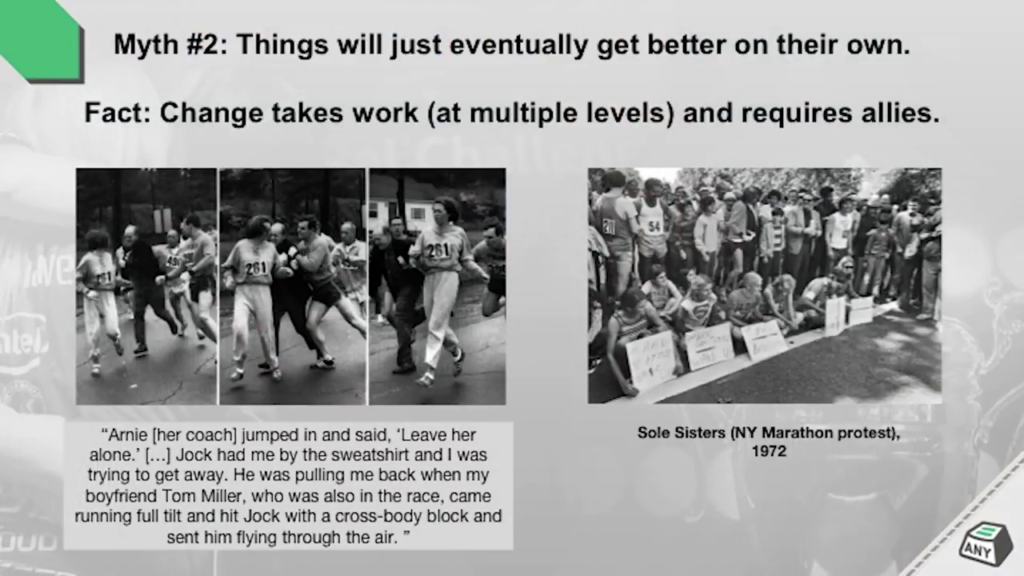
But the other thing that I think is important when you start to think about myths is one of the things we encounter very often in esports and gaming is the idea that it’ll just get better better with time. And we keep wanting to say no, it actually takes hard work. It takes allies, and it takes work across a range of levels.
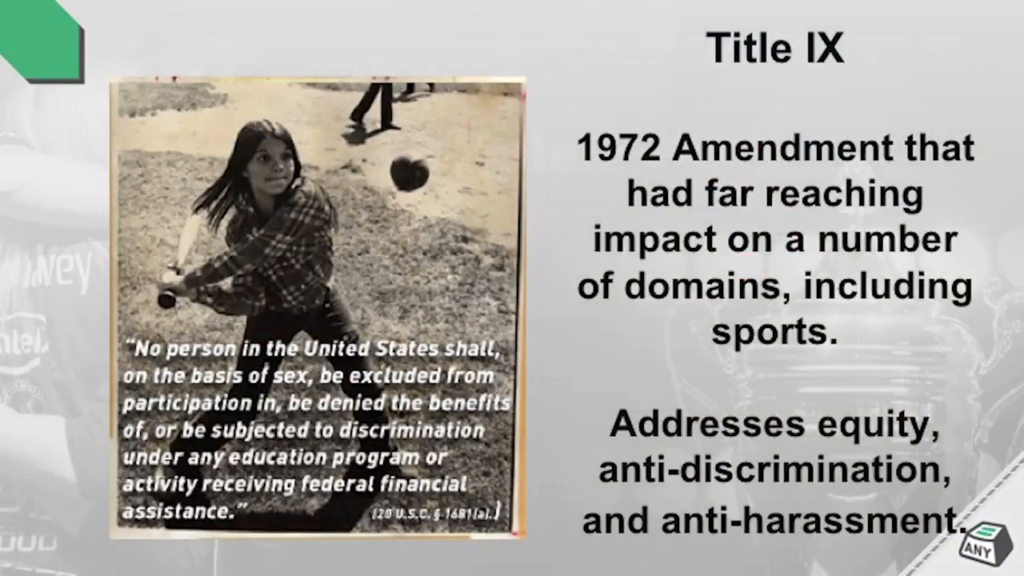
So I think one of the best examples of this of course in athletics is Title IX. Probably most of us in this room benefited from Title IX in 1972, a piece of legislation that basically said you had equitable access. So one of the things that we’re often looking at in AnyKey are what are the—we can’t quite do legal, but what are the policy things that we can do to facilitate women and girls’ participation.
So we do things in the organization like we help other orgs formulate codes of conduct and set up kind of fair rules for tournaments. We just produced a whitepaper on best practices around gender in esports tournaments. So what does for example having a trans-inclusive policy look like if you’re running a women’s tournament? So again, it’s not quite law, but thinking about what are the structures of governance that organizations can take up.
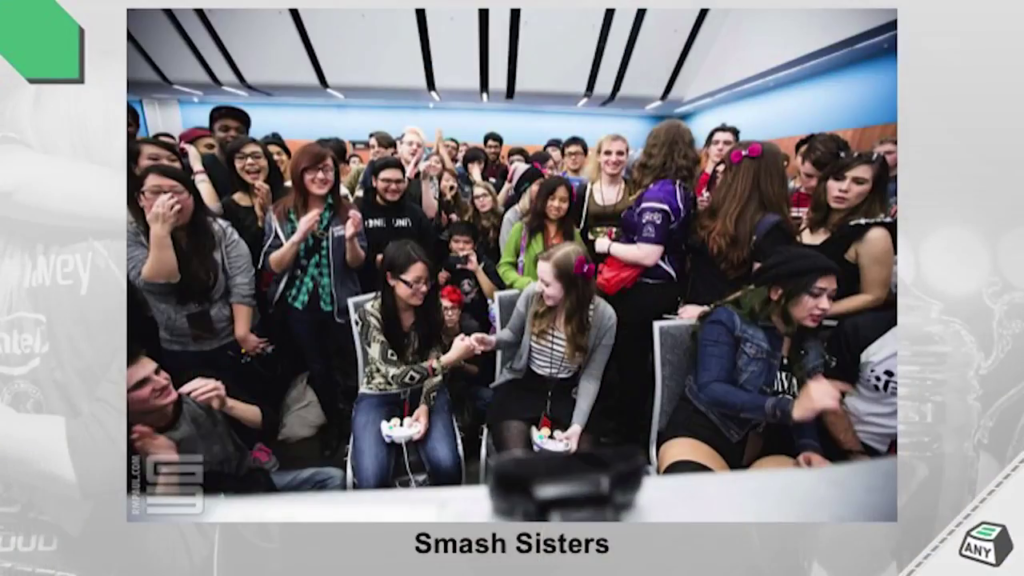
The other thing we do is we try to support a lot of other organizations that are out there. Again, if you think of kind of kindred organizations that are doing important work to facilitate change. This is one of my favorite ones. It’s a project called Smash Sisters.
Women’s athletics, one of the most important things that happened early on was something called play days, where women and girls were just allowed to come in and try different sports to see if they’d like them. Smash Sisters is a really interesting project because it not only gives women an opportunity to play at the competitive level, but at conventions they can come and just hang out and try out games on their own.
So we support things like Smash Sisters. We run our own tournaments for competitive professional play at the high end. We support a lot of affiliate organizations and maybe you recognize some of those that are doing good work. We try to get this conversation out in public venues. So, not just having a conversation about harassment or inclusion or participation in academic spaces but we go to places like PAX and have a conversation at a public event.
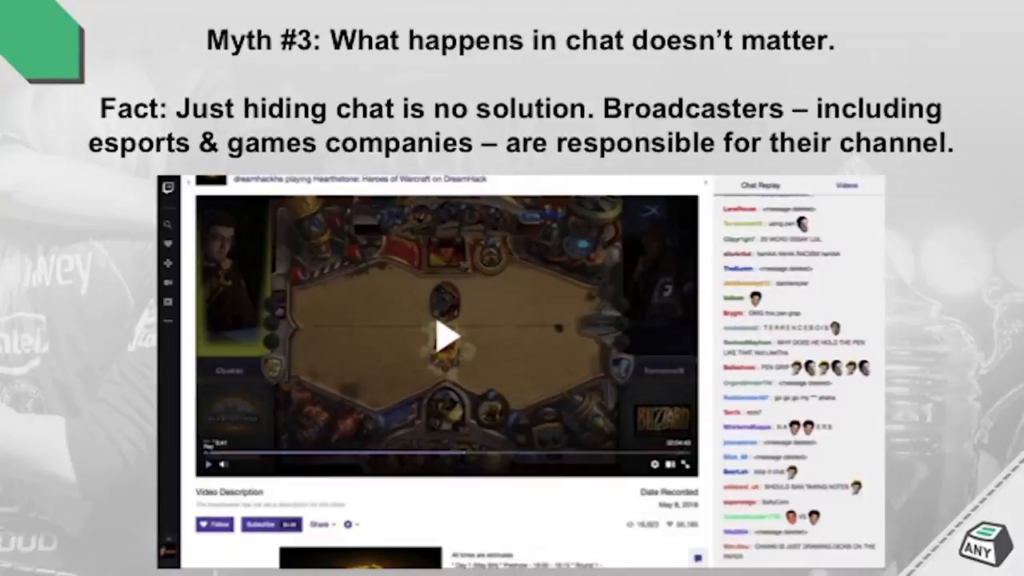
The other myth I want to mention, I’ll just run through quickly, is of course probably most of us are familiar with the idea that just…you know, don’t read the comments, close the chat… We’re very committed, very committed to seeing chat in these online conversation spaces be changed and be fantastic and more productive.
So we do whitepapers. We’ve worked with a lot of different stakeholders who are innovating in that space. We have a grad student in the audience Claudia Lo, who’s doing fantastic research on game moderators in these spaces and how they’re handling it.
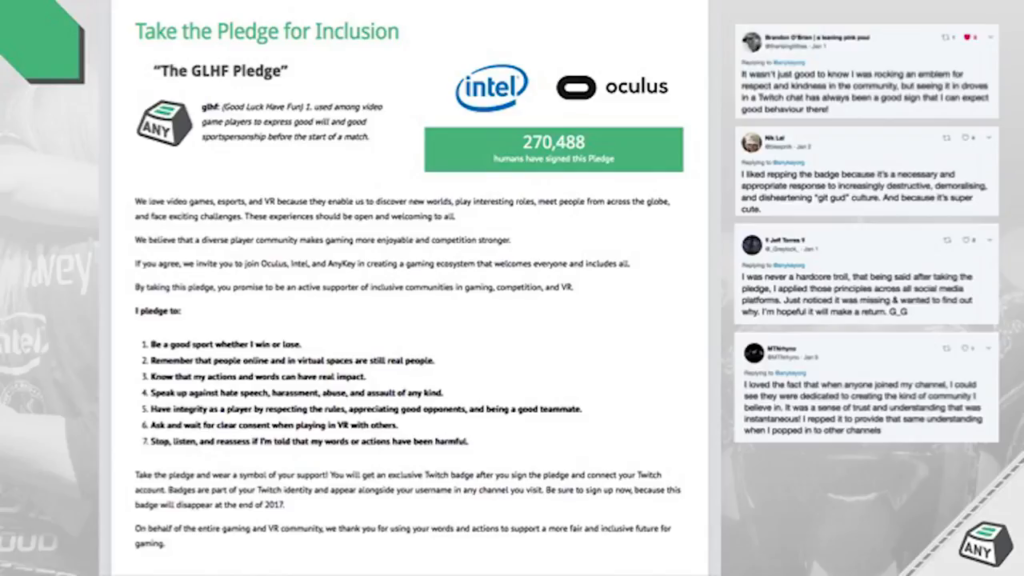
The project we launched recently—we were blown away by this. We did a pledge that we rolled out online. We had a quarter of a million people sign it, which was fantastic, pledging that they wanted to have good game spaces. They got a little icon in Twitch when they signed it. And I just pulled some of the quotes from Twitter where people were just thrilled to be going in to Twitch chatrooms and suddenly seeing other people with this icon which signaled something about the culture of the space.
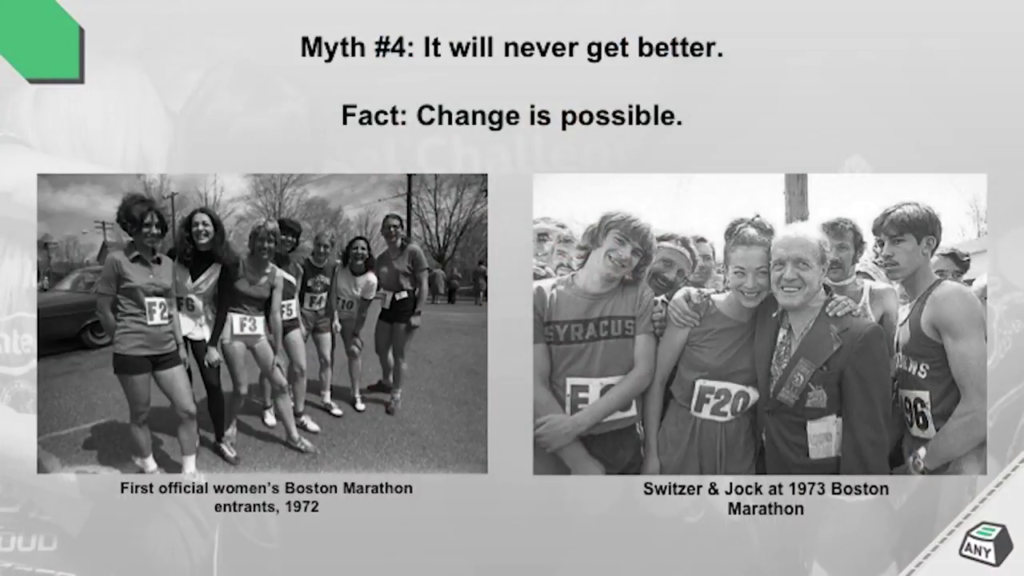
Finally of course, it’s important to remember it can get better, it does get better. I love this picture of Switzer and Jock just a handful of years later. Actually Jock learned. He came around. He actually was educated and things got better. And we think it can be that way in gaming and esports, too. So follow us, feel free to hit me up if you want to hear more about what we’re doing. We have a lot of info at our web site. Thanks.
Further Reference
Gathering the Custodians of the Internet: Lessons from the First CivilServant Summit at CivilServant

